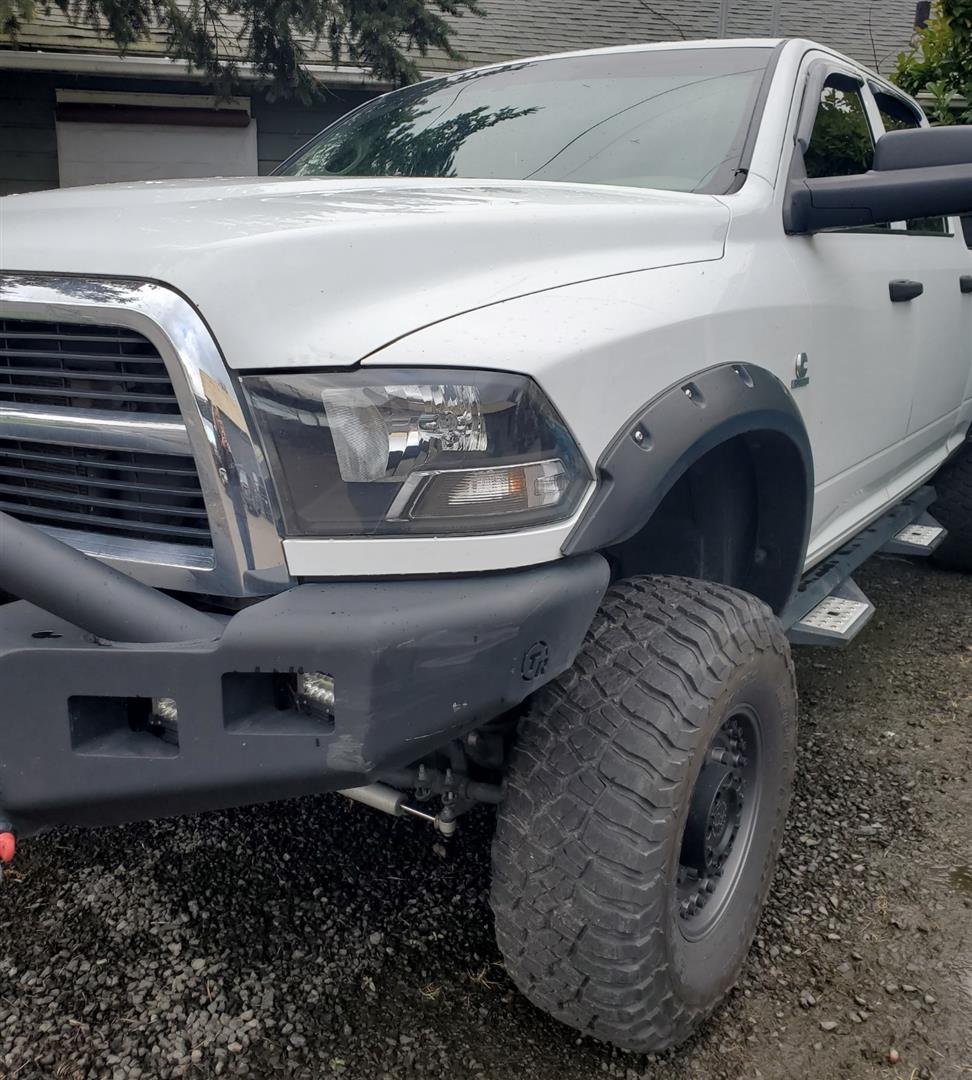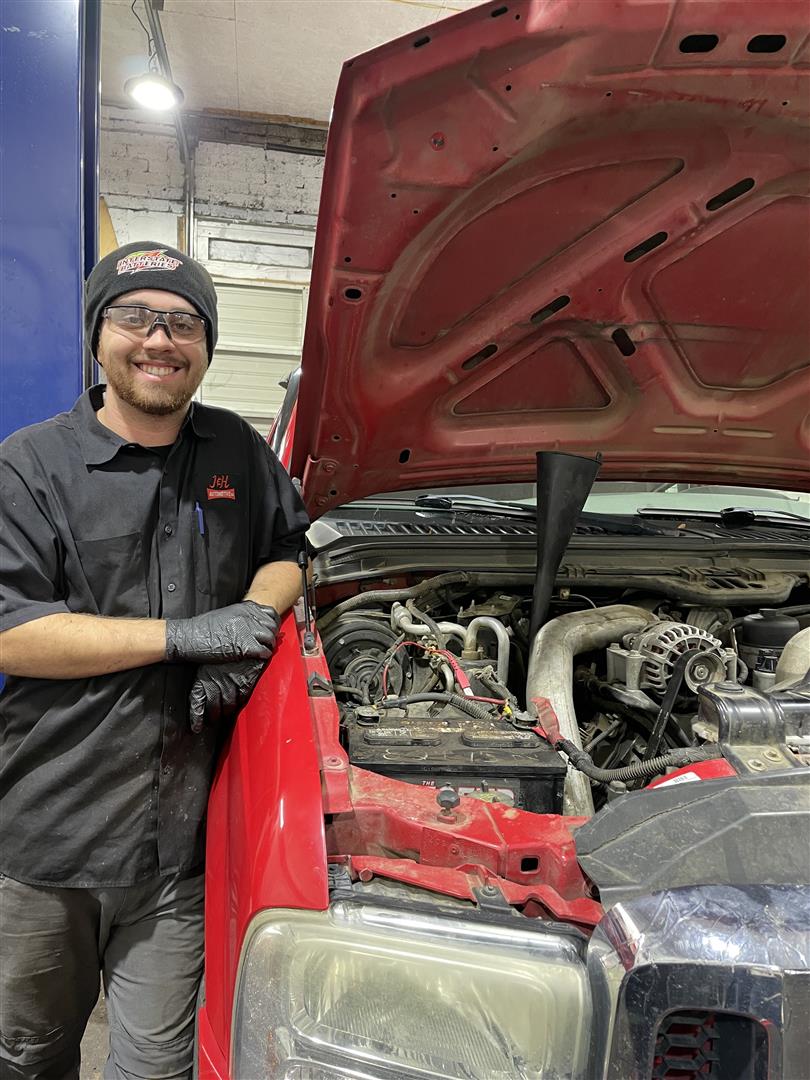Posted on 10/11/2024
Diesel fuel injectors operate under high pressure. They inject fuel into the combustion chamber at precise moments, creating a fine mist that mixes with air. This mixture ignites when compressed by the piston, producing power. Types of Diesel Fuel Injectors There are several types of diesel fuel injectors, each with its own characteristics: Common Rail Injectors: These injectors use a high-pressure common rail system to deliver fuel to the injectors. They offer precise control over fuel injection timing and quantity. Unit Injector: This type combines the injector and fuel pump into a single unit, simplifying the fuel delivery system. Pumpe Düse (PD): PD injectors incorporate a pump and injector in a single unit, providing high injection pressure and precise control. Common Diesel Fuel Injector Problems Diesel fuel injectors can experience various issues, including: Clogging: Contaminants in the fuel can clog the injector nozzles, leading to reduced fuel ... read more
Posted on 7/16/2024
Ford diesel pickups are designed for heavy-duty work, yet fuel system problems can impede their efficiency. Being aware of potential issues can aid in maintaining optimal performance. Fuel Pump Failures - which can lead to difficult starts, engine stalling, or total engine shutdown, are a frequent issue. Replacing the fuel filter regularly and opting for quality fuel can help prolong your fuel pump's lifespan. Clogged Fuel Filters - A clogged fuel filter can impede fuel flow, causing diminished engine performance and reduced fuel economy. Adhering to the manufacturer's guidelines for fuel filter replacement is critical to prevent this problem. Water in the Fuel System - Water in the fuel system can severely damage both injectors and the fuel pump. Employing a water separator and consistently draining trapped water can avert such damage. Maintaining a clean and efficient fuel system is vital for your diesel pickup's durability and performance. We can take care of yo ... read more
Posted on 7/9/2024
Those who love Fords, love Ford diesel pickups - if you're a Chevy, GMC or Dodge person I will get to them too - I promise. Fords are renowned for their strength and reliability, there are a few things you should know about your diesel engine. This can help you maintain your truck and avoid costly repairs. Injector Failure - premature fuel injector failure which is often caused by poor-quality fuel. Symptoms include rough idling, misfires, and a significant drop in fuel efficiency. Regularly using high-quality diesel, changing your fuel filter and regular maintenance can prevent premature failure. They are a wearing part though so they will need to be replaced at some point. Turbocharger Problems - is your turbocharger lagging? Or has it failed? These problems might be due to oil contamination, wear, or excessive exhaust temperatures. Regular oil changes and keeping an eye on your truck's exhaust system can help prevent a ... read more
Posted on 6/28/2024
Seeing white smoke from your diesel engine can be alarming. Not only is it a sign that something isn’t right, but it can also indicate other underlying issues that may need immediate attention. White smoke from a diesel engine often indicates the presence of un-burned fuel or coolant in the exhaust system. When these substances are not properly combusted, they create a white vapor that exits through the exhaust. Typically un-burnt fuel causes black smoke, but we have seen it cause white smoke as well. The primary reason for white smoke is a coolant leak. When coolant leaks into the combustion chamber - and it doesn't belong there. It mixes with the diesel fuel, causing incomplete combustion. This result can be from a damaged head gasket, a cracked engine block, or a faulty cylinder head. A sure sign of a coolant leak is a sweet smell accompanying the white smoke or a noticeable drop in the coolant level. Another common reason for white smoke is ... read more
Posted on 6/7/2024
A turbocharger is a critical component in enhancing the performance of your vehicle by forcing extra air into the combustion chamber, thereby increasing power without the need for a larger engine. However, when a turbocharger is not producing the desired boost, it can lead to a noticeable drop in engine performance and efficiency. Understanding why your turbocharger might not be making boost is the first step in solving this issue and getting back to optimal vehicle operation. Common Causes of Turbocharger Boost Issues: Turbocharger problems can stem from a variety of issues, ranging from simple fixes to more complex mechanical failures. Here are some common reasons why your turbocharger may not be performing as expected: Leaks in the Intake or Exhaust System: One of the most common causes of reduced turbo boost is a leak in the intake or exhaust system. Any leak in the intake path between the turbocharger and the engine can result in less air entering the engine, reducing boost. Sim ... read more
Posted on 5/10/2024
Diesel engines are known for their efficiency and durability, which is largely due to their unique fuel injection system. Unlike gasoline engines that mix air and fuel before they enter the combustion chamber, diesel engines inject fuel directly into compressed, hot air at high pressure. This method, known as direct injection, allows for greater efficiency and power in diesel engines. Fuel injectors are complex mechanisms that must deliver fuel at the right moment, in the correct quantity, and in a precise pattern. This precision ensures optimal combustion, which leads to better engine performance and fuel efficiency while minimizing harmful emissions. Symptoms of Faulty Fuel Injectors Decreased Fuel Efficiency: If your diesel engine starts consuming more fuel than usual, a faulty injector could be the culprit. Engine Misfires: When fuel injectors do not deliver fuel properly, it can cause the engine to misfire, which you might notice as a stutter or hesitation when the engine is runni ... read more
Posted on 4/23/2024
When diesel engines produce smoke, it's usually indicative of two potential issues that can impact their performance. The first common cause is an excessive amount of fuel entering the engine without being efficiently utilized during combustion. This can occur due to issues such as a malfunctioning fuel injector or an incorrect fuel-to-air ratio. The second reason for smoke in diesel engines is related to oil consumption. If the engine is burning oil along with fuel, it can result in visible smoke emissions. This scenario often points to problems like worn-out piston rings, valve seals, or other components in the engine that are allowing oil to enter the combustion chamber. Addressing these issues promptly is crucial for maintaining the optimal efficiency of your engine. When too much fuel goes unburned or when oil is consumed improperly, it can lead to decreased fuel efficiency, increased emissions, and potential damage to engine components over time. Regular inspections and ma ... read more
Posted on 6/29/2023
This may be due to the CP4 pump failing. Your CP4 pump is your high-pressure fuel pump. This pump converts low fuel pressure into high fuel pressure. Your CP4 may fail due to many reasons. The CP4 pump may fail due a lack of lubrication to the pump itself. This lack of lubrication can be from ultra-low sulfur diesel. This diesel does not have all the lubrication properties that are needed for the pump to work correctly. It can also fail due to water in your fuel system. The water will take away the lubrication properties of your diesel and this will cause the pump to fail. Water in your fuel can cause failure. Your fuel filters help to filter out the water. If you fuel filters are old, then they will not filter out the water properly. Your CP4 pump has a camshaft with lobes inside the pump. When this component starts to fail it causes metal debris. This debris is introduced into the fueling system including your fuel injectors, fuel tank, fuel lines, anything that fuel go ... read more
Posted on 2/28/2023

A turbocharger loves clean engine oil and coolant. Having your engine oil changed at the recommended interval will keep your turbocharger working properly. Your engine oil should be changed every 5,000 miles and we always recommend using full synthetic engine oil. This will help to prevent the breakdown of the engine oil due to the higher temperatures. We also recommend a cooling system fluid service every 36 months. Over time your coolant stops protecting your engine due to electrolysis and corrosion. The corrosion-inhibiting components in your coolant break down and stop protecting your engine from damage. Some engines may need a corrosion and anti-cavitation additive. Give us a call and let us take care of you. Happy Adventures, Heather Our specials can be found here - Specials - J & H Automotive, Inc Ready to make an appointment … ... read more
Posted on 2/21/2023

A turbo charger compresses the air and forces it into the engine. When done properly this can dramatically increase the amount of power that a small engine can produce. Smaller engines are often more fuel efficient, this give you the benefit of more power and still having great fuel economy. Along with a turbocharger a few other components are needed to make it as efficient and powerful as possible. Including an intercooler, hoses, and pipes. Rapidly compressed air gets very hot, decreasing the temperature of the air through the intercooler before it goes into the engine increasing density and giving the engine more power. Give us a call and let us take care of you. Happy Adventures, Heather Our specials can be found here - Specials - J & H Automotive, Inc Ready to make an appointment … Appo ... read more